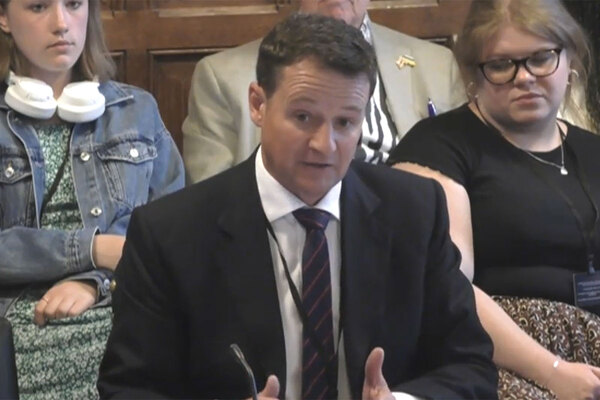Councils to get new powers to punish developers for slow build-out rates
Developers that take too long to build out homes that have been given planning approval could be penalised under changes being proposed in new legislation.
Aimed at speeding up housing delivery, the measure is part of a set of amendments proposed by housing secretary Michael Gove to the Levelling Up and Regeneration Bill, which returns to the commons this week.
Under the proposals, developers would have to report to councils annually on the progress of their build-out rates and local authorities will have new powers to block planning proposals from builders that have failed to deliver on sites.
Despite being significantly watered down since its inception in the 2020 Planning White Paper, the wider bill will introduce a number changes to the planning system, including an Infrastructure Levy to replace Section 106 and a community land auction pilot.
The new amendments put forward by Mr Gove will also attempt to tackle river pollution by “enshrining in law” an obligation on water companies to upgrade wastewater treatment works.
It is hoped the measure will help break the current impasse on ‘nutrient neutrality’, an issue that has led to an estimated 100,000 new homes being blocked due to fears over rising levels of phosphates entering the waterways.
The new requirement for water companies could lead to a 75% reduction in phosphorus loads and around a 55% reduction in nitrogen loads in total from wastewater treatment works, said the Department for Levelling Up, Housing and Communities.
“These upgrades will enable housebuilding to be unlocked by reducing the amount of mitigation developers must provide to offset nutrient pollution. This will be accompanied by a Nutrient Mitigation Scheme that will make it easier for developers to discharge their mitigation obligations,” it said.
The bill also includes plans for the ‘street votes’ initiative – a way for residents to propose additional development on their street, such as extensions to existing homes, through mini referendums.
According to the amendments, planning permission for these developments will only be granted when the community has endorsed the plans and an independent examiner is satisfied that design requirements have been met.
The street votes plan, first proposed by thinktank Policy Exchange, was put forward by Mr Gove after he tore up plans for more radical planning reforms proposed by his predecessor, Robert Jenrick.
Mr Jenrick’s plans, which included a zoning system for planning, were dubbed a “developers charter” and scrapped by then-prime minister Boris Johnson in the face of a huge rebellion from backbench Conservative MPs.
While the planning reforms have been watered down, local control over housing development remains a huge issue. Another set of amendments to the bill seeks to scrap mandatory local housing targets set by Westminster.
Housing minister Lucy Frazer said: “Levelling up means creating vibrant and beautiful communities where local people and businesses can thrive. The measures we are setting out today will put protecting the environment at the heart of our plans, while bringing forward much-needed new homes across the country.
“We will make sure that new development is surrounded by the right infrastructure and that local people are given an opportunity to shape their neighbourhood.”
Sign up for our development and finance newsletter
Already have an account? Click here to manage your newsletters
Sign up to the Social Housing Annual Conference 2022
The Social Housing Annual Conference is the sector’s leading one-day event for senior housing leaders, which delivers the latest insight and best practice in strategic business planning. The conference will provide multiple viewpoints and case studies from a variety of organisations from across the housing spectrum, including leaders in business and local and central government.
Join your peers for a full day of intensive, high-level learning, networking and informed debate addressing the most crucial topics surrounding finance, governance and regulation to help the sector understand and manage the pressures it faces.
Find out more and book your delegate pass here.













